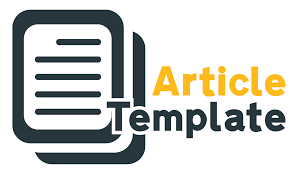PENGARUH PENGGUNAAN MEDIA GAMBAR TERHADAP KEMAMPUAN MENULIS TEKS CERITA FANTASI SISWA KELAS VII SMP
DOI:
https://doi.org/10.36709/pesastra.v2i2.33Keywords:
Influence of using image media; ability to write; fantasy story; textsAbstract
This research aims to determine the effect of using image media on the ability to write fantasy story texts in class VII students at SMP Negeri 10 Kendari. This type of research includes quantitative research. The method used is an experimental method in the form of a nonequivalent control group design in a pretest-posttest only control group design. The population in this study were all class VII students at SMP Negeri 10 Kendari, totaling 154 people consisting of 5 parallel classes. Sampling used purposive sampling technique. Class VII-2 is the experimental class sample and class VII-1 is the control class sample. The research results were analyzed using the dependent t test and independent t test. The dependent t test using the paired sample t test formula shows the results in the experimental class, namely the t count value is greater than t table (12.350 > 2.042), while the control class t count value is greater than ttable (4.734 > 2.042), so it can be concluded that there are differences in learning outcomes from average pretest and posttest scores in the experimental class and control class. The independent t test using the independent sample t test formula shows the results that the tcount value is greater than t table (2.763 > 2.000), meaning that there is a significant difference between the experimental class and the control class. Soit can be concluded that there is an influence of the use of image media on the ability to write fantasy story texts in class VII students at SMP Negeri 10 Kendari.
Downloads
References
Arikunto, S. (2002). Metodologi penelitian. Jakarta: PT Rineka Cipta.
Arsyad, A. (2010). Media pembelajaran. Jakarta: PT Raja Grafindo Persada.
Awalludin, A., & Haleluddin, H. (2020). Keterampilan menulis akademik. Serang: Media Madani.
Dahlan. (2018). Keterampilan menulis. Depok: Rajawali Pers.
Dewayani, S., dkk. (2023). Paduan guru Bahasa Indonesia SMP kelas VII. Jakarta Selatan: Kemendikbud.
Hendryadi. (2017). Validasi isi: Tahap awal pengembangan kuisioner. Jurnal Riset Manajemen dan Bisnis (JRMB) Fakultas Ekonomi Uniat, 2(2).
Hasriati, dkk. (2017). Bahasa Indonesia SMP/MTs kelas VII edisi revisi. Jakarta: Pusat Kurikulum dan Perbukuan Balitbang dan Kemendikbud.
Kementerian Pendidikan dan Kebudayaan. (2016). Kamus Besar Bahasa Indonesia (Edisi ke-6). Jakarta: Balai Pustaka.
Munadi, Y. (2013). Media pembelajaran: Sebuah pendekatan baru. Jakarta: Referensi.
Nuryadi, N., dkk. (2017). Buku ajar dasar-dasar statistik penelitian. Yogyakarta: In Sibuku Media.
Payadnya, I. B. M., & Jayantika, N. K. A. (2018). Paduan penelitian eksperimen beserta analisis statistik dengan SPSS. Sleman: Deepublish.
Retnawati, H. (2015). Analisis kuantitatif instrumen penelitian. Yogyakarta: Parama Publishing.
Sadiman, A. S. (2014). Media pendidikan. Jakarta: Rajawali Pers.
Subarna, R. (2021). Bahasa Indonesia SMP kelas VII. Jakarta Pusat: Kemendikbud.
Sugiyono. (2013). Metode penelitian kuantitatif, kualitatif, dan R&D. Bandung: Alfabeta.
Setiadi, S., & Yuwita, R. (2020). Bahasa Indonesia: Belajar tentang cerita fantasi. Malang: Institusi Agama Islam Sunan Kalijogo Malang.
Tarigan, H. G. (2013). Menulis sebagai suatu keterampilan berbahasa. Bandung: Angkasa.
Usmadi, U. (2020). Pengujian persyaratan analisis uji homogenitas dan uji normalitas. Inovasi Pendidikan, 7(1), 50–62.


